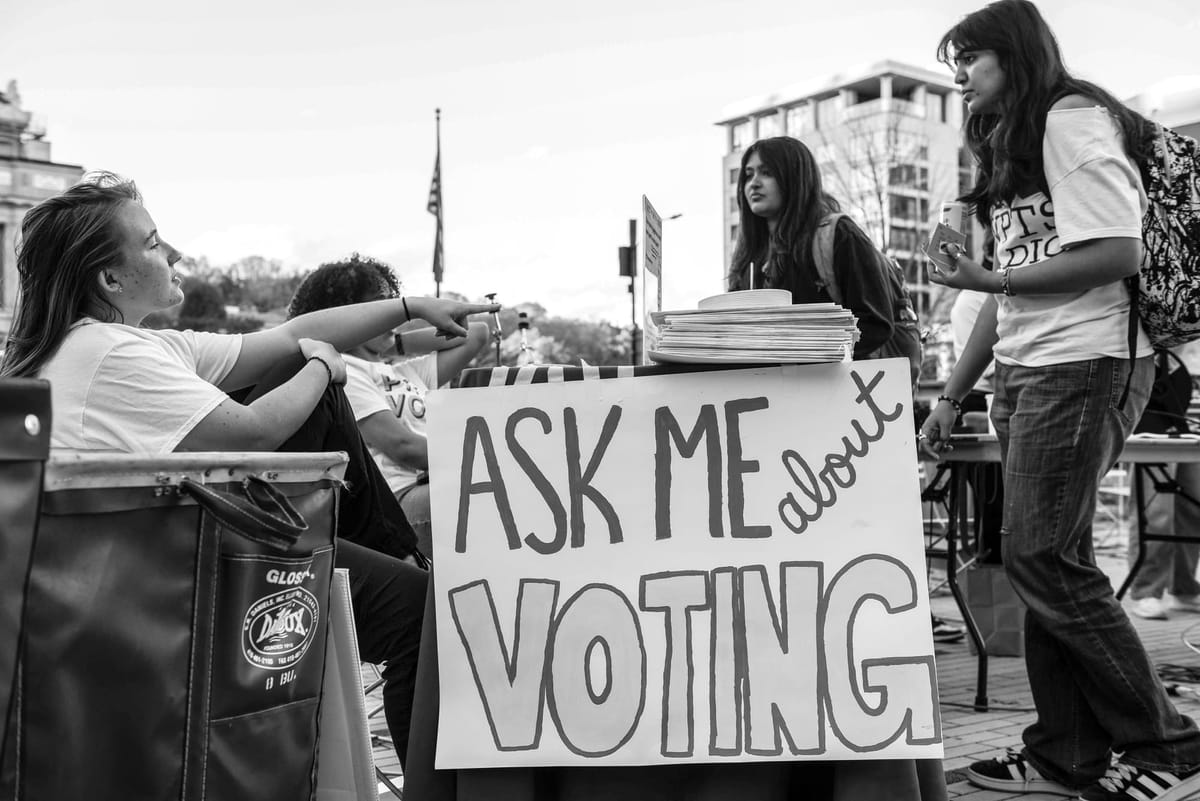Multiple Lawsuits Filed Over Trump’s Attempt to Overhaul U.S. Elections
The complaints say Trump's executive order issued last week on voting rights is unconstitutional and could prevent millions of citizens from voting—in particular women and people of color.

The Trump administration’s attempt to overhaul the United States’ election system was met by a slew of legal challenges this week claiming that an executive order issued last week on voting rights is unconstitutional and that it would prevent millions of citizens from voting—in particular women and people of color.
The Campaign Legal Center and the State Democracy Defenders Fund—two non-profits—brought the first lawsuit Monday afternoon. Later that day, the Democratic National Committee, the Democratic Governors Association, and Senate and House Democratic leaders followed with a complaint of their own.
On Tuesday, another complaint was filed by a coalition of voting rights organizations on behalf of the League of Women Voters of the United States, the League of Women Voters of Arizona, League of Women Voters Education Fund, Hispanic Federation, the National Association for the Advancement of Colored People, Asian and Pacific Islander American Vote, and OCA-Asian Pacific American Advocates.
The complaints are all directed at an executive order issued by the Trump administration last week under which voters would be required to present proof of citizenship—a passport, birth certificate, or naturalization papers—in order to register to vote. But according to the complaints, the order is both unconstitutional and would disenfranchise millions of eligible voters. Recent research has found that more than 9% of American citizens of voting age, or 21.3 million people, don’t have proof of citizenship readily available.
The complaint filed by the group of co-defendants on Tuesday states that millions of Americans have changed their legal name and therefore are unable to register to vote with their birth certificate. About 84% of married women and 6% of married men in opposite-sex marriages in the U.S. changed their name when they got married, according to the complaint. In addition to that, of the approximately 1.3 million American adults who identify as transgender, many have changed their legal names to something other than the name that’s on their birth certificate.
The complaint also states that a huge number of American citizens, especially elderly people of color, never received a birth certificate. Many were historically denied access to hospitals, including for childbirth, on account of segregation.
“The president has no constitutional or statutory authority to unilaterally dictate how elections are run. This executive order is a blatant violation of the separation of powers. Election rules are decided by Congress and the states, and any attempt by the executive branch to override their power violates the Constitution,” the coalition wrote in a joint-statement accompanying the complaint.
“These unlawful attacks on voting rights are part of a broader effort to undermine our democracy. We have filed suit to stop this executive order and to keep it from interfering with eligible voters’ participation in our elections,” it added.
The suit filed on Monday by the Democratic Party states that the executive order “seeks to impose radical changes on how Americans register to vote, cast a ballot, and participate in our democracy—all of which threaten to disenfranchise lawful voters and none of which is legal."
It was filed by the longtime Democratic election lawyer Marc Elias and other lawyers at his firm. Senator Chuck Schumer and Representative Hakeem Jeffries—the leaders of the Democratic minorities in the U.S. Senate and House of Representatives—respectively, are also plaintiffs in the case.





